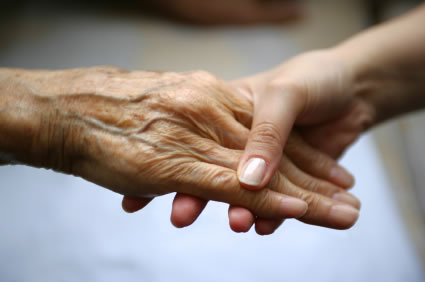Published: October 11, 2011
 Addressing the earliest stages of Alzheimer’s disease, before a patient shows outward signs of cognitive problems, has sometimes been a challenge for physicians and researchers, in part because they have not been using common and specific terms to describe the disease’s initial phases. A Mayo Clinic study recommends adding categories to more effectively identify and treat people and give researchers standard definitions to work with. The study is published in this month’s issue of the Annals of Neurology.
Addressing the earliest stages of Alzheimer’s disease, before a patient shows outward signs of cognitive problems, has sometimes been a challenge for physicians and researchers, in part because they have not been using common and specific terms to describe the disease’s initial phases. A Mayo Clinic study recommends adding categories to more effectively identify and treat people and give researchers standard definitions to work with. The study is published in this month’s issue of the Annals of Neurology.
The researchers assessed new guidelines for preclinical Alzheimer’s disease (AD) that were recently published by a working group formed by the National Institute on Aging and the Alzheimer’s Association (NIA-AA). The group’s work marked the first attempt to define criteria for Alzheimer’s preclinical phase, which is increasingly recognized as a long latent stage of the disease in which Alzheimer’s pathology and biomarkers of that pathology become abnormal, while subjects remain clinically asymptomatic. The guidelines represented a significant step forward because evidence increasingly suggests this early phase is the best time to treat the disease. [continue reading…]
Published: October 8, 2011

istockphoto
hile medical researchers continue the search for advanced diagnosis, prevention and treatment of dementia, a researcher at
Royal Holloway, University of London is focusing on improving the experiences of those already suffering with the devastating disease for whom any cure would be too late.
Professor Helen Nicholson is devoting her time to evaluating a pioneering project which enables advanced dementia sufferers to take part in art, drama and dance projects.
Hearts and Minds is a unique creative arts and reminiscence project, run by Age Exchange, specifically for older people with Alzheimer’s or other forms of dementia but also including people with other mental health needs such as schizophrenia and depression.
Artists are be working with care staff in South London and Maudsley NHS Trust to hold group work and one-to-one performing arts session with dementia sufferers.
Dementia is a terrifying and isolating disease that affects brain function and in particular the ability to remember, think and reason. Around 750,000 people have been diagnosed with dementia in the UK and the Department of Health predicts that this number is to double in the next 30 years. There is no cure and symptoms will get worse over time.
Although dementia sufferers often have little or no short term memory, their long term memory is intact and they can use this in the Hearts and Minds project. [continue reading…]
Published: October 3, 2011
 Having type-2 diabetes can double people’s risk of getting Alzheimer’s disease. This finding, widely covered in the lay media, comes from a report in the journal Neurology. For 11 years, Japanese researchers followed more than 1,000 people aged 60 or older. Those with diabetes at the outset were 35 percent more likely to develop Alzheimer’s than those without diabetes; those with the most severe diabetes had more than triple the risk.
Having type-2 diabetes can double people’s risk of getting Alzheimer’s disease. This finding, widely covered in the lay media, comes from a report in the journal Neurology. For 11 years, Japanese researchers followed more than 1,000 people aged 60 or older. Those with diabetes at the outset were 35 percent more likely to develop Alzheimer’s than those without diabetes; those with the most severe diabetes had more than triple the risk.
Diabetes, however, is only one in a growing list of possible Alzheimer’s risk factors. Having the e4 variant of the APOE gene is another. Moreover, having the e4 variant plus living in a hazardous neighborhood might predispose people to Alzheimer’s even more than just having the APOE e4 variant, preliminary data suggest. Read more on this topic in Psychiatric News at http://pn.psychiatryonline.org/content/46/8/27.full.
Published: August 16, 2011

Image: Creative Commons Studio Vision 1
Moderate social drinking significantly reduces the risk of dementia and cognitive impairment, according to an analysis of 143 studies by Loyola University Chicago Stritch School of Medicine researchers.
Researchers reviewed studies dating to 1977 that included more than 365,000 participants. Moderate drinkers were 23 percent less likely to develop cognitive impairment or Alzheimer’s disease and other forms of dementia.
Wine was more beneficial than beer or spirits. But this finding was based on a relatively small number of studies, because most papers did not distinguish among different types of alcohol.
Results are reported in the journal Neuropsychiatric Disease and Treatment. The authors are Edward J. Neafsey, PhD. and Michael A. Collins, PhD., professors in the Department of Molecular Pharmacology and Therapeutics.
Heavy drinking (more than 3 to 5 drinks per day) was associated with a higher risk of cognitive impairment and dementia, but this finding was not statistically significant.
“We don’t recommend that nondrinkers start drinking,” Neafsey said. “But moderate drinking — if it is truly moderate — can be beneficial.” Moderate drinking is defined as a maximum of two drinks per day for men and 1 drink per day for women. [continue reading…]
 Addressing the earliest stages of Alzheimer’s disease, before a patient shows outward signs of cognitive problems, has sometimes been a challenge for physicians and researchers, in part because they have not been using common and specific terms to describe the disease’s initial phases. A Mayo Clinic study recommends adding categories to more effectively identify and treat people and give researchers standard definitions to work with. The study is published in this month’s issue of the Annals of Neurology.
Addressing the earliest stages of Alzheimer’s disease, before a patient shows outward signs of cognitive problems, has sometimes been a challenge for physicians and researchers, in part because they have not been using common and specific terms to describe the disease’s initial phases. A Mayo Clinic study recommends adding categories to more effectively identify and treat people and give researchers standard definitions to work with. The study is published in this month’s issue of the Annals of Neurology.


